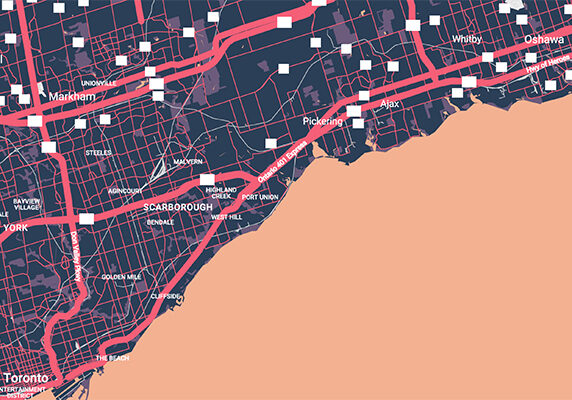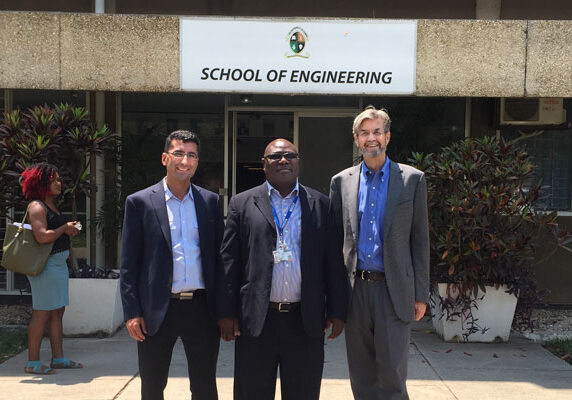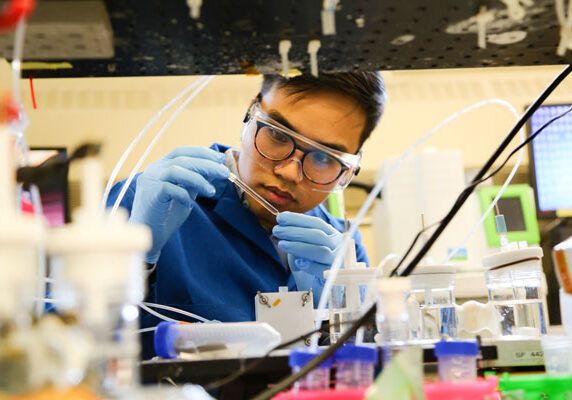
Artificial photosynthesis gets big boost from new catalyst
U of T Engineering system takes inspiration from plants to convert electrical energy to chemical energy at 64 per cent efficiency, the highest yet reported for renewable carbon fuels
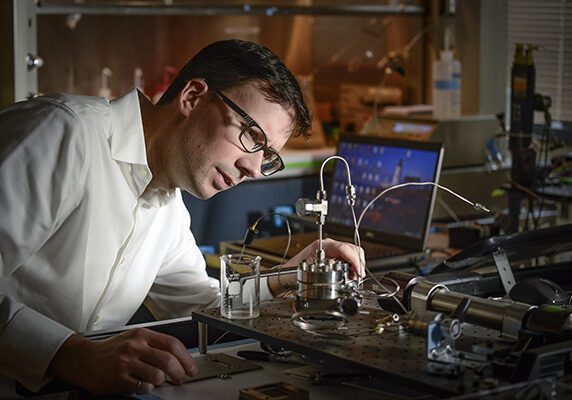
David Sinton elected fellow of the American Association for the Advancement of Science
Award recognizes Sinton’s application of microfluidics to challenges in sustainable energy

Electric vehicle partnership earns $9-million investment
University of Toronto Electric Vehicle Research Centre (UTEV) receives major grants to advance R&D of sustainable transportation
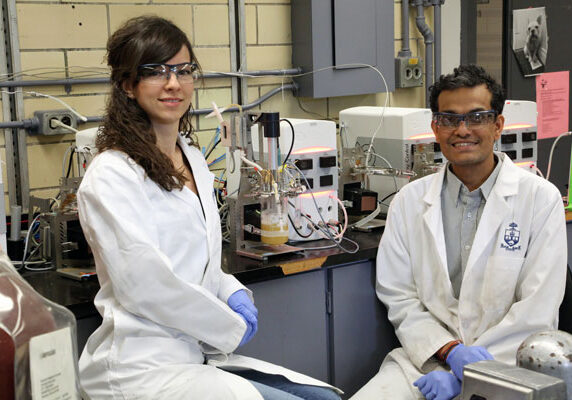
Natural fibres: New yeast strains could turn plant waste into fabrics
U of T Engineering researchers are developing bio-based commodity chemicals, including nylon precursors

U of T Engineering students win global speedbike competition
Vehicle achieves speed of 127.6 kilometres per hour
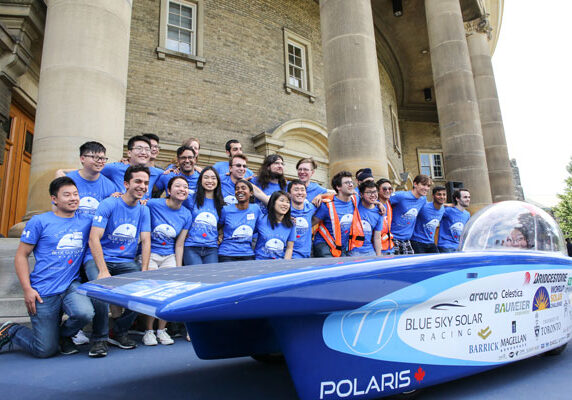
Polaris: Blue Sky Solar Racing team unveils its newest vehicle
Ninth-generation solar vehicle to race 3,000 kilometres across Australia in the 2017 World Solar Challenge
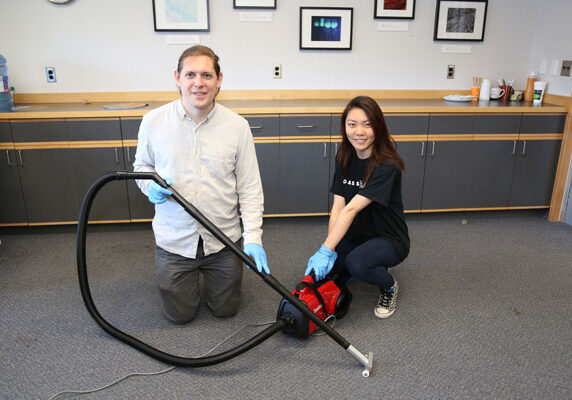
U of T Engineering researchers search for toxins in the aftermath of Fort McMurray wildfire
Project aims to test household dust for evidence of ash, lead contamination and more

